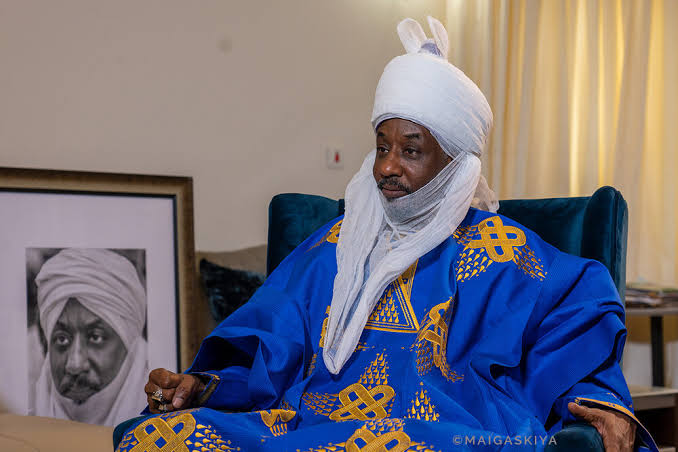Dividing Nigeria, Emir Sanusi II critiques regionalism, advocates for cohesive national identity, questions bicameral legislature, and calls for efficient governance focused on unity and accountable leadership.
In a thought-provoking interview, the Emir of Kano, Muhammadu Sanusi II, offered a piercing critique of Nigeria’s political system. His analysis not only questions the structural inefficiencies within the current governance model but also challenges the popular notion that regionalism could resolve the country’s deep-seated issues.
Sanusi’s arguments highlight several key points:
1. Bicameral Legislature: A Question of Necessity
Sanusi opened by scrutinizing the need for a bicameral legislature, suggesting it might be a source of unnecessary bureaucratic complexity. “Is a bicameral legislature really serving the interests of Nigeria, or is it just another layer of inefficiency?” he asked, echoing sentiments of a growing number of Nigerians dissatisfied with the current system’s sluggishness and redundancy.
2. Ministerial Appointments: A Case for Pragmatism
The Emir also criticized the practice of appointing ministers from every state regardless of necessity. This, he argued, leads to inflated governmental structures and inefficiencies. “Why appoint a minister from every state when it’s not required?” Sanusi posited, advocating for a more streamlined and need-based approach to governance.
3. Federal Interference: A Call for True Federalism
Reflecting on historical and contemporary issues, Sanusi condemned federal interference in state matters, particularly in traditional and chieftaincy affairs. He stressed the importance of maintaining a clear separation of powers and adhering to constitutional principles to ensure accountable governance. “The federal government’s overreach into state affairs undermines local governance and disrupts the balance of power,” he noted.
4. Regionalism: A False Panacea
Sanusi was particularly critical of regionalism, questioning its practicality in a nation as diverse as Nigeria. He argued that subdividing the country further could exacerbate existing tensions rather than resolve them. “Are we really honest about the regions we talk about? Can we keep dividing this country into homogeneous units? The conflicts in the Niger Delta and between various ethnic groups suggest otherwise,” he stated.
5. Unity and Accountability: The Real Solution
Instead of regionalism, Sanusi called for fostering a cohesive national identity and a governance structure that promotes unity and accountability. “We need to think as Nigerians first, not through the narrow lens of regional or ethnic identities. Political leadership should stop exploiting these divisions for personal gain,” he urged.
6. Historical Lessons: Learning from the Past
Drawing lessons from Nigeria’s past political systems, Sanusi highlighted the failures of the First Republic’s regional and parliamentary systems, emphasizing that simply changing the structure would not solve the underlying issues. “We had a regional system and a parliamentary system in the First Republic. How did it end? It’s not about the system but the people operating it,” he remarked.
Conclusion: Beyond Structural Changes
Sanusi’s insights present a compelling argument for focusing on practical governance reforms rather than romanticizing regionalism as a cure-all. His call for a more unified approach to governance, grounded in accountability and constitutional adherence, offers a pathway towards a more stable and effective Nigerian state.
Sanusi’s Wisdom in His Words:
“I think there are several things we can do to address those structures because, at the end of the day, if you allow the state governors to run, the thing with devolution is we have 36 states, if only half of the governors are good, at least half of Nigeria has a good government.”
As Nigeria navigates its complex political landscape, the words of the Emir of Kano serve as a reminder that true progress lies not in structural fantasies but in fostering genuine unity and accountability within the existing framework.
References:
– Vanguard: [Sanusi’s Exclusive Interview on Nigeria’s Political Landscape]
